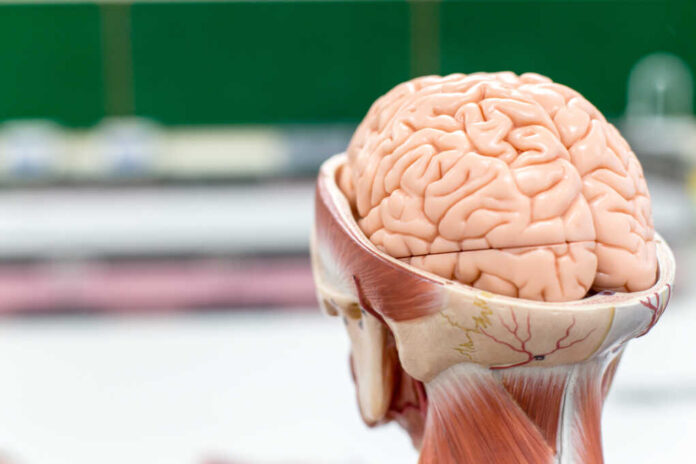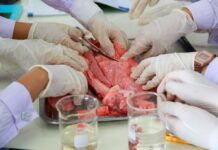
New studies show that daily habits—including eating specific fruits—can significantly slow brain aging, offering hope for millions of Americans determined to protect their minds as they age.
Story Snapshot
- Artificial intelligence now measures individual rates of brain aging, revealing actionable risk factors.
- Physical activity and certain fruits may help maintain memory and prevent cognitive decline.
- Metabolic research shifts focus from drugs to everyday lifestyle choices for brain resilience.
- Experts urge Americans to take daily action for lifelong brain health and independence.
AI, Lifestyle, and the New Science of Brain Aging
Brain health has become a national concern as the American population grows older and families witness firsthand the devastating effects of dementia and cognitive decline. In 2025, researchers from the University of Southern California announced a breakthrough: artificial intelligence can now assess how quickly an individual’s brain is aging, years before outward symptoms appear. This technology, developed at USC’s Viterbi School of Engineering, combines brain scans and cognitive test data to provide a precise, personalized measurement of brain age. The promise is early detection, empowering Americans to take action before irreversible decline sets in.
Anti Aging Breakthrough
Researchers at NYU have developed an AI powered tool called the Nuclear Morphometric Pipeline (NMP) that accurately identifies and tracks senescent cells – damaged cells linked to aging and disease, by analyzing changes in their nuclei.
The tool could… pic.twitter.com/CiS5dtUhx1
— Dr Singularity (@Dr_Singularity) July 7, 2025
According to Dr. Paul Bogdan, who leads the project, these AI models could become “early biomarkers and guides for personalized interventions,” a marked shift away from expensive, one-size-fits-all drug treatments that have failed to deliver results for most families in recent decades. The AI research indicates that lifestyle choices—not just genetics—play a powerful role in how quickly our minds age. This is particularly relevant for conservative readers who have long advocated for self-reliance and practical, evidence-based solutions over bureaucratic mandates.
Watch: Anti-Aging Revolution: AI Predicts Alzheimer’s Risk Decades Early!
Physical Activity and Diet: Proven Shields Against Cognitive Decline
New research from UT Southwestern Medical Center reinforces the central role of physical activity in protecting the brain. Their April 2025 study found that lifelong exercise—walking, gardening, working outdoors—directly preserves brain volume, slows the shrinkage of key memory centers, and lowers the risk of dementia. The lead scientist, Dr. Rong Zhang, says, “Cardiorespiratory fitness is a modifiable factor that can lower your risk,” echoing the principle that individuals, not government agencies, are best positioned to safeguard their own health[2]. These findings support the wisdom of integrating daily movement into the American way of life—a core family value that has been eroded by screen addiction and government-enforced lockdowns in recent years.
But exercise is just one piece of the puzzle. The latest metabolic research, published in Frontiers in Science, points to the power of diet—specifically, the daily consumption of certain fruits and nuts—to maintain brain health. Scientists have zeroed in on glial cells, the “support staff” of the brain, which manage energy use and protect neurons from stress. Foods rich in antioxidants and healthy fats, such as blueberries and walnuts, appear to bolster glial function, defending the brain from age-related damage. This emerging evidence aligns with traditional American dietary wisdom—simple, natural foods over processed snacks—and underscores the danger of government nutrition policies that have prioritized industrial agriculture over real health outcomes for decades.
Metabolic and Resilience Research: Beyond Drugs, Toward Daily Choices
Stanford University’s Knight Initiative for Brain Resilience has launched a real-time, nationwide study to understand why some Americans remain mentally sharp into their 80s and 90s, while others succumb to memory loss much earlier. The early results are clear: resilience comes not from government handouts or the latest pharmaceutical, but from a lifetime of healthy habits—physical activity, a diet high in fruits, nuts, and healthy fats, and robust community engagement.
Importantly, these breakthroughs are not just academic. The integration of AI, metabolic modeling, and lifestyle interventions is rapidly moving from the laboratory to the doctor’s office. Personalized brain aging assessments are expected to become part of routine health care within the next decade, giving Americans the tools to make informed choices about their futures. The economic implications are profound: by preventing or delaying dementia, the nation could avoid billions in taxpayer-funded care costs and preserve the independence of millions of seniors—a clear win for freedom and fiscal responsibility.
Sources:
USC: New AI Model Measures How Fast the Brain Ages
UT Southwestern: Lifelong Physical Activity May Slow Cognitive Decline
Frontiers in Science: The Future of Healthy Brain Aging Will Be Metabolic
Stanford: Real-time Study Explores How the Aging Brain Copes with Stress


















